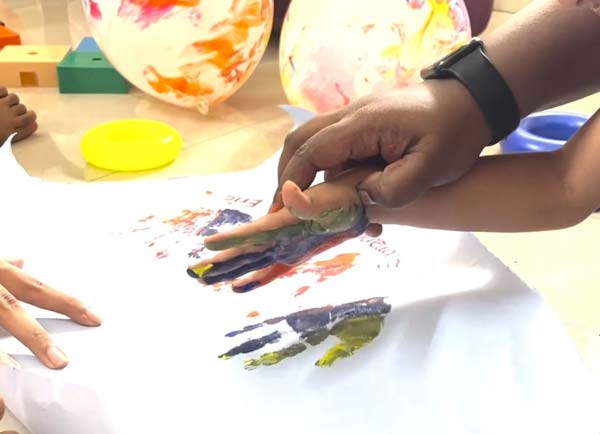Department
Individualized Education Program [ IEP ]
IAN Institute of Rehabilitation and Research:
An Individualized Educational Program (IEP) is a written plan that describes the specific educational goals and services that a student with a disability will receive. The IEP is developed by a team of professionals, including the student’s teacher, parents, and other specialists, and is based on the student’s individual needs and strengths.
IAN Institute of Rehabilitation & Research (IANIRR) plays a crucial role in developing and implementing IEPs for children with disabilities. Their team of experienced professionals collaborates closely with parents to ensure that the IEP aligns with the child’s unique needs and aspirations.
IANIRR’s IEP Process
The IEP development process at IANIRR follows a structured and collaborative approach:
Assessment: The IEP team conducts a comprehensive assessment to gather in-depth knowledge about the student’s learning abilities, strengths, and challenges. This assessment encompasses various aspects, including academic skills, communication skills, sensory processing, social-emotional development, and adaptive skills.
Goal Setting: Based on the assessment findings, the IEP team collaborates with the parents to establish specific, measurable, achievable, relevant, and time-bound (SMART) goals. These goals should be tailored to the student’s individual needs and should be aligned with their overall development and educational trajectory.
Service Determination: The IEP team determines the specific educational and therapeutic services that the student will receive to support their goal attainment. These services may include special education, speech-language therapy, occupational therapy, physical therapy, counseling, and any other interventions deemed necessary.
Accommodations and Modifications: The IEP team identifies and implements appropriate accommodations and modifications to the curriculum and teaching methods to ensure that the student has equal access to learning opportunities and can demonstrate their knowledge and skills effectively. These accommodations may include extended time for test-taking, alternative assessment formats, preferential seating, assistive technology, and other support measures.
Plan Implementation: The IEP team oversees the implementation of the IEP, ensuring that the student receives the designated services, accommodations, and modifications. Regular progress monitoring is conducted to assess the student’s progress towards their goals and make adjustments to the IEP as needed.
IANIRR’s Commitment to IEP Implementation
IANIRR is committed to ensuring that the IEP is implemented effectively and that the student receives the support they need to achieve their goals. Their team of dedicated professionals is passionate about helping children with disabilities reach their full potential and become successful learners and individuals.
Benefits of IEPs in IANIRR
The implementation of IEPs at IANIRR has numerous benefits for students with disabilities, including:
Targeted Support: IEPs provide individualized support that addresses the specific needs and challenges of each student, ensuring that their unique learning styles and abilities are catered to.
Goal-Oriented Approach: The IEP’s focus on SMART goals provides a clear roadmap for the student’s progress and allows for consistent monitoring and evaluation of their achievements.
Collaborative Effort: The IEP development process is a collaborative effort involving parents, teachers, specialists, and the student themselves, fostering a sense of shared responsibility for the student’s success.
Proactive Intervention: IEPs enable proactive intervention, identifying areas of weakness early on and providing targeted support to prevent further delays and challenges.
Lifelong Skills Development: IEPs focus on developing the skills necessary for lifelong success, including academic, social, emotional, and functional skills.
In conclusion, IANIRR’s commitment to IEPs plays a vital role in supporting the academic, social, and emotional development of children with disabilities. Their comprehensive approach to IEP development and implementation ensures that each student receives the individualized support they need to reach their full potential.






